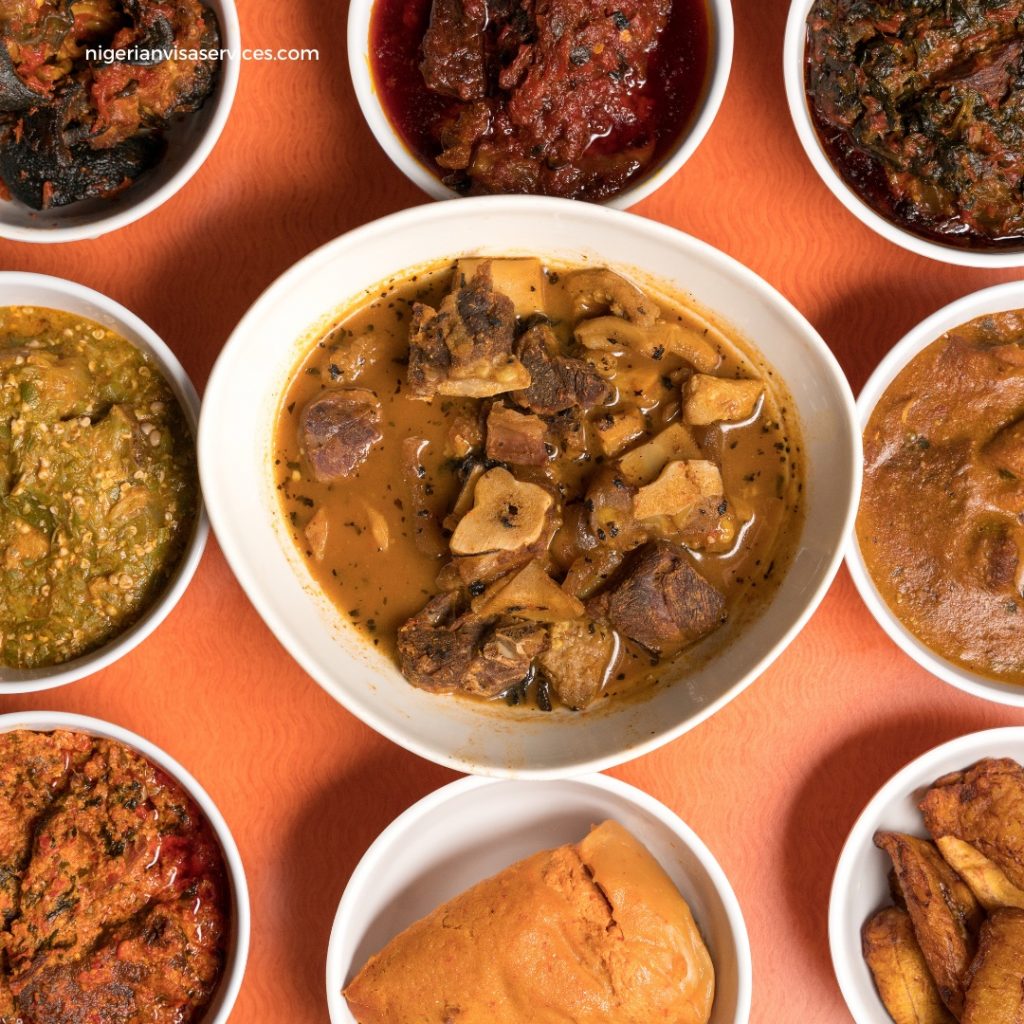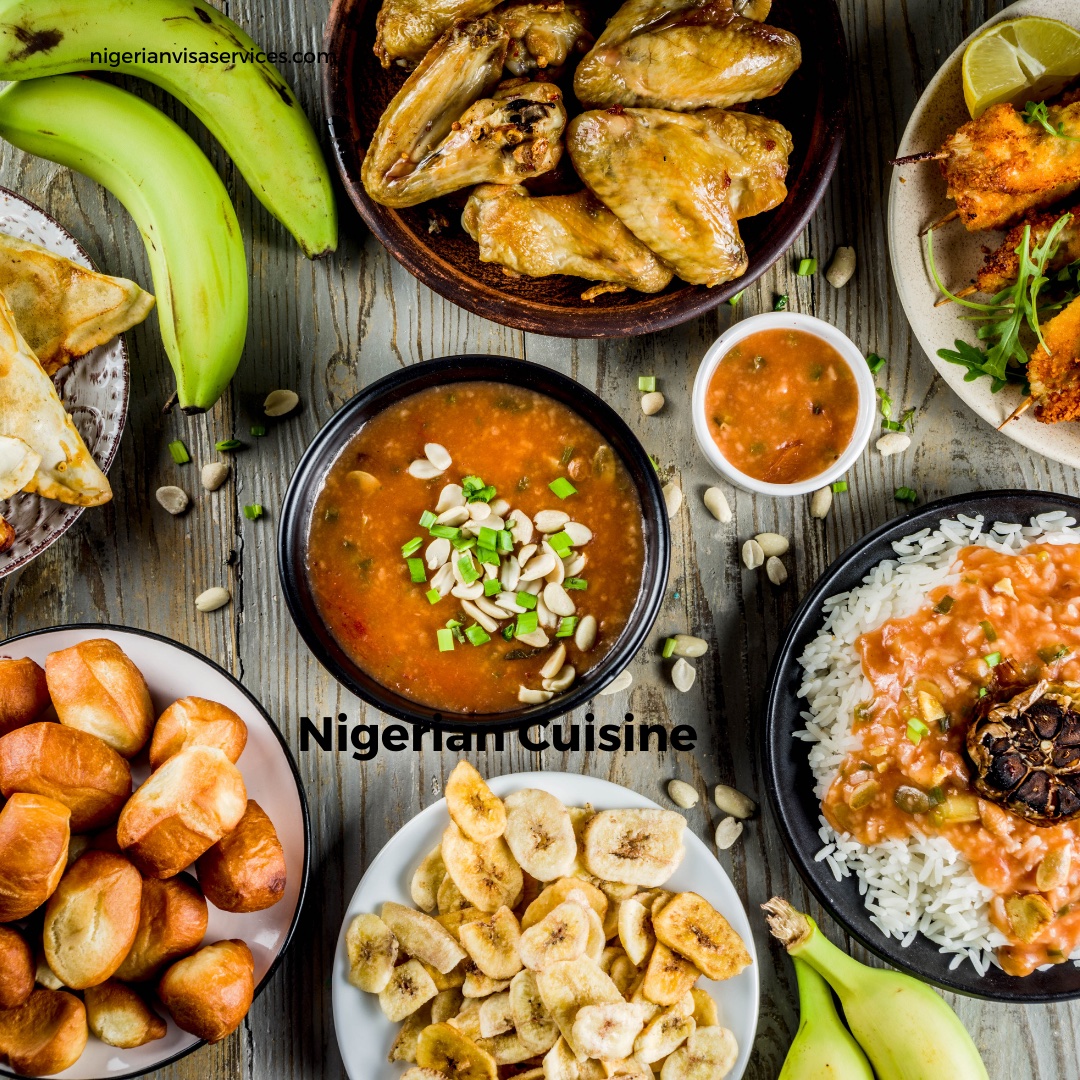Nigerian cuisine is a compelling fusion of flavors, colors, and aromas that will leave your taste buds begging for more. As a visitor to Nigeria, immersing yourself in the local food scene is an absolute must. With its rich history, diverse cultural influences, and abundant fresh ingredients, Nigerian cuisine offers a unique culinary experience that will delight even the most discerning palate.
A Brief History of Nigerian Cuisine
Nigerian cuisine is deeply rooted in the country’s history and cultural heritage. Over the centuries, Nigeria has been influenced by various civilizations, including the indigenous tribes, Arab traders, Portuguese explorers, and British colonialists. Each of these influences has left an indelible mark on the country’s culinary landscape.
Must-Try Dishes in Nigerian Cuisine
No exploration of Nigerian cuisine would be complete without indulging in some of the must-try dishes. Jollof rice, a flavorful one-pot rice dish cooked with tomatoes, peppers, onions, and various spices, is often considered Nigeria’s national dish. Another beloved dish is suya, a popular street food made from skewered and grilled meat seasoned with a spicy peanut-based marinade. Other must-try dishes include egusi soup, a delicious melon seed-based soup, and pounded yam, a staple accompaniment to many Nigerian meals.
Ingredients and Flavors Commonly Used in Nigerian Cuisine

Nigerian cuisine is characterized by its bold and vibrant flavors, thanks to the use of a wide variety of ingredients and spices. From aromatic herbs like basil and mint to fiery peppers and pungent onions and garlic, Nigerian dishes are bursting with flavor. Commonly used ingredients include palm oil, which adds a distinctive red color and unique taste to many dishes, and crayfish, a staple in Nigerian soups and stews. Other popular flavors in Nigerian cuisine include ginger, curry powder, and the smoky taste of grilled or smoked meats.
Regional Variations in Nigerian Cuisine
Nigeria’s vast size and diverse ethnic groups contribute to a wide array of regional variations in its cuisine. In the northern part of the country, dishes like tuwo shinkafa (millet or cornmeal dumplings) and miyan kuka (a soup made from powdered baobab leaves) are popular. In the south, seafood takes center stage, with dishes like banga soup (made from palm fruit extract) and fresh fish pepper soup. The southwestern part of Nigeria is known for its rich and spicy stews, while the eastern region is famous for dishes like nsala soup (made from catfish and spices) and ofe akwu (a palm nut soup).
Where to Experience Authentic Nigerian Cuisine in Nigeria

To truly experience the authentic flavors of Nigerian cuisine, venture beyond the confines of your hotel and explore the local food scene. Street food vendors, local markets, and traditional eateries known as “bukas” are great places to start. In Lagos, the bustling city that never sleeps, head to the famous Jollof Rice Festival to sample a variety of jollof rice dishes prepared by talented local chefs. If you find yourself in the capital city of Abuja, make sure to visit the Gwari Village Restaurant, which offers a unique dining experience with traditional Nigerian dishes.
Tips for Exploring Nigerian Cuisine as a Visitor
To make the most of your culinary adventure in Nigeria, here are a few tips to keep in mind. Firstly, be open-minded and willing to try new flavors and textures. Nigerian cuisine is diverse and may differ from what you are accustomed to, but that’s part of the excitement. Secondly, don’t be afraid to ask for recommendations from locals. Nigerians are known for their hospitality and will be more than happy to guide you to the best food spots. Lastly, be mindful of hygiene and food safety practices. Choose reputable establishments and ensure that the food is cooked thoroughly and served hot.
Popular Nigerian Food Festivals and Events
If you happen to be in Nigeria during one of its many food festivals and events, consider yourself lucky. These vibrant celebrations showcase the best of Nigerian cuisine and offer a fantastic opportunity to indulge in a variety of dishes. The Eko Food Festival in Lagos is a must-visit, featuring food stalls, live cooking demonstrations, and cultural performances. Another notable event is the Calabar Carnival in Cross River State, where you can savor traditional Nigerian dishes while immersing yourself in the rich cultural heritage of the region.
Traditional Nigerian Drinks to Try
No culinary journey through Nigeria would be complete without sampling some traditional Nigerian drinks. Zobo, a refreshing hibiscus drink infused with ginger and served chilled, is a popular choice. Palm wine, a sweet and mildly alcoholic beverage made from fermented palm sap, is another must-try. For a non-alcoholic option, try kunu, a millet or sorghum-based drink that is often enjoyed with snacks like akara (bean cakes) or moi moi (steamed bean pudding).
Conclusion: Exploring Nigerian Cuisine as a Travel Experience

Visiting Nigeria is not just about the breathtaking landscapes and vibrant culture; it is also an opportunity to embark on a gastronomic adventure like no other. Exploring the vibrant flavors of Nigerian cuisine will introduce you to a world of bold spices, exotic ingredients, and mouthwatering dishes. So, whether you are a food lover or simply looking to expand your culinary horizons, make sure to add Nigerian cuisine to your travel bucket list. Your taste buds will thank you.
CTA: Ready to embark on a culinary adventure in Nigeria? Start planning your trip today and discover the vibrant flavors of Nigerian cuisine firsthand.


